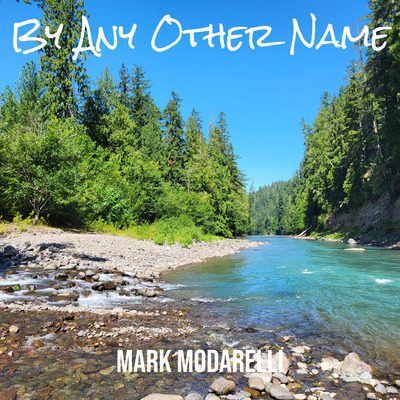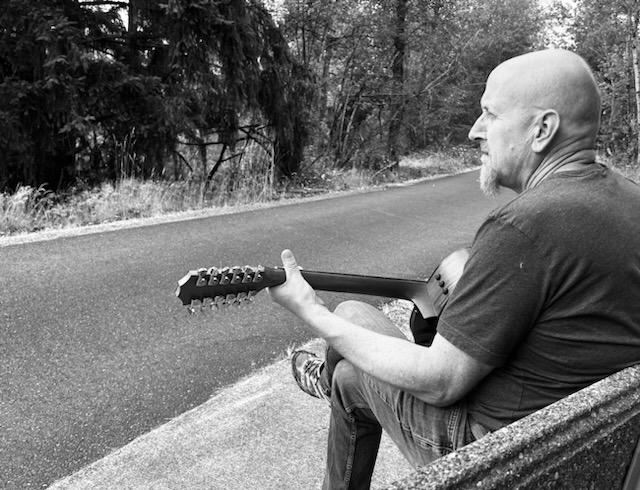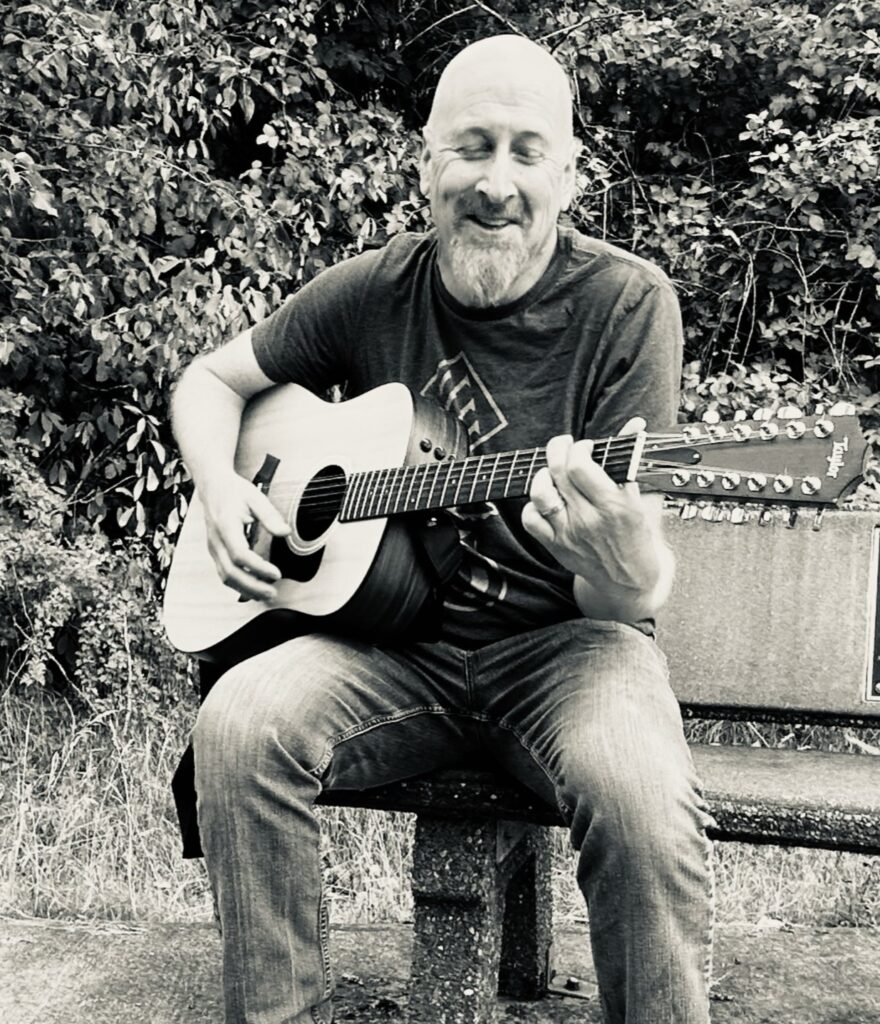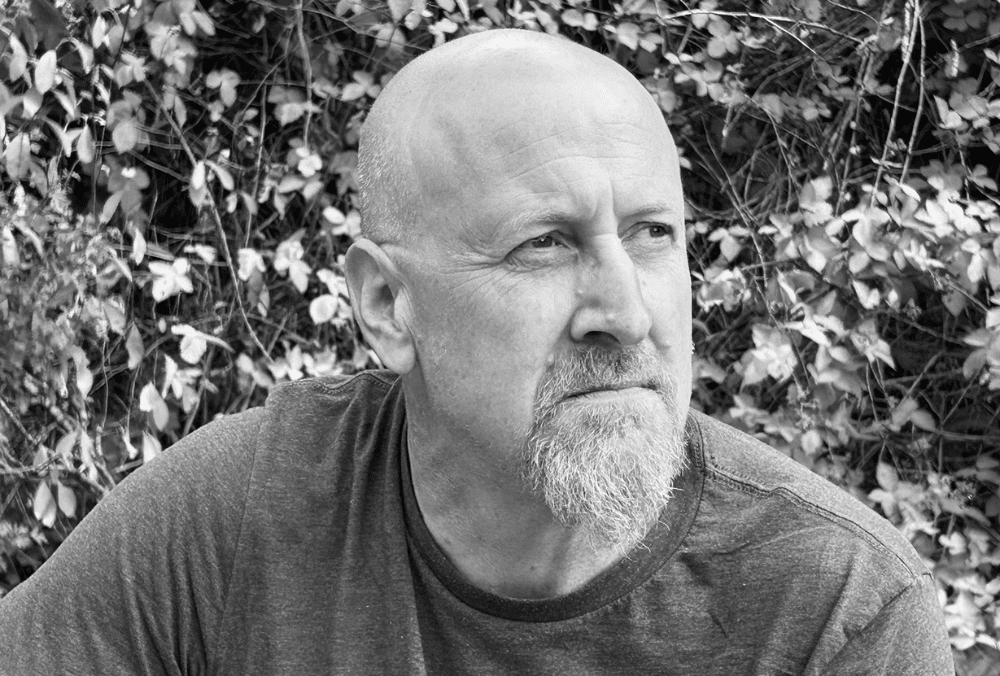Indie Rock musician, Mark Modarelli ‘s new EP, By Any Other Name, takes inspiration from his deep understanding of language’s power and limitations, drawing from his background as an English teacher and writer. The title track reflects on the relationship between words and reality, questioning societal norms, and the influence of language on perception.
In our in-depth interview, Mark criticizes the attempt to control language and highlights that true belief doesn’t depend on others’ validation. His music encourages critical thinking, unity, and engagement with history, addressing themes like seeking external validation, division in the digital age, and the importance of resilience.
The rising star’s fusion of influences, drawn from diverse artists, helps convey his message organically, while his upcoming releases emphasize positivity, gratitude, and the interconnectedness of memories and experiences.
Read the full interview below.
Can you share the inspiration behind the title track, “By Any Other Name,” and how it encapsulates the theme of questioning societal norms and language’s influence on perception?
This song was germinating in my head for a long time. I’ve taught English Language and Literature at the college and high school level for nearly a quarter century and I have graduate degrees in English so I’ve spent a lot of time thinking and talking about language, its power, its limitations, etc., and it comes up in a lot of my work. “Throwing Words Away,” the first track on Strange to Me, for example.
And obviously writers have explored the relationship between words and things forever. The title is, of course, taken from Shakespeare and the recognition that using a different word for something does not change what it is. The line in the second verse about “The secret strength of things which governs thought,” is taken from Shelley’s Mont Blanc and likewise concedes the dependence of many words on the correspondent reality of which we use them to make sense.
I’m sure we’ve all noticed, in recent years, an increasingly vocal part of the population who attempt to force people to use words the way they want them to and who are willing to go to often frightening lengths to police and control language. But of course, this position imagines that words, rather than being the imperfect technology which we use to try to find truths, can somehow make things true. It’s not unlike a religious person who desperately needs to convert others. That always struck me as odd since it seems to make belief in an eternal truth dependent on the verification of others.
As the chorus acknowledges, in my experience, when we truly believe something the most certain sign of its truth is that we don’t care whether or not anyone else believes it and have no need for them to affirm it for us by using the words we want them to.
Someone else can’t bring us peace in our beliefs about the world, it has to be found within us. Otherwise we remain, like teenagers, absurdly uncertain about ourselves and correspondingly preoccupied with the perceptions and affirmations of others. There’s no strength or freedom there, only victimhood and what Milton’s Satan calls “eternal War/ Irreconcilable” with the world around us.

“Folly Marches On” seems to critique the new generations and their failure to uphold ideals. How do you envision your music impacting listeners to break away from this cycle and strive for meaningful change?
Great question. I tend to always want songs to end with some form of affirmation. I am a big believer in gratitude and hope (“Making Up My Mind,” track 2 on Strange to Me). The last line talks about how we have to stop looking for anybody to change but ourselves. So what do I mean by that?
We’re so politically divided right now it’s a nightmare. So if I say I’m a conservative there’s a whole blogosphere of assumptions out there that people will saddle me with. The straw man of conservatism is, of course, the person who rejects all change and wants some horrible repressive past. It’s such an absurdly stupid simplification it’s amazing it still has any power. My brand of conservatism is of the kind discussed by people like the late Roger Scruton, a brilliant British philosopher. It’s simply the recognition of the obvious and historically undeniable idea that it is far easier to destroy something good and beautiful than it is to create it. Of course change is inevitable and desirable. Without change there is no growth and where there is no growth, there is no life. However, if you decide, for example, to remodel, to change your home, you don’t just go knocking things down without determining whether or not a wall is load-bearing or where the plumbing and electrical run, etc. And you certainly wouldn’t want to do anything that might damage or destroy the foundation. And this is just a house! Imagine how careful one should be in considering and implementing change to something as varied, complex, and wonderful as modern western society!
So I guess the kind of change in ourselves I want to promote is a recognition that, simply by being born into the Western world at this time, we are already more fortunate than 99% of everyone who has ever lived. Of course, it’s not perfect, no human civilization ever is. To say America is exceptional is to say just that. Virtually, all human societies throughout history have involved the rule of many by one or few. This experiment in which everyone is free to pursue their own idea of happiness is the exception to this rule. It’s messy, but it’s worth it. Freedom to succeed is necessarily freedom to fail. I guess I hope we can embrace and defend that principle, regardless of our political affiliation.
In “Shame On Us,” you explore the dangers of blindly following those who perpetuate dishonesty and manipulation. How do you hope your music encourages people to actively engage in critical thinking and discernment?
Somebody, I can’t remember who at the moment, once said something like “History may not repeat, but it often rhymes.” We’ve had this perfect storm of failing education and hyper-exposure to information and we increasingly tend to forget or be misled about history. Most of the alarming things we’re seeing in our society, increasing division, manipulation of information, censorship, weaponization of government institutions, has happened before. Hell, it’s happening now in some parts of the world. I think we really need to be listening to the people who have lived under such conditions. People from the former Soviet Union, for example, must be pretty amazed to see the West sort of sprinting towards the very thing they fled from. I really think we need to pay more heed to the voices who have seen all these sorts of things before.
“The Vanity of Wishes” delves into the emptiness of seeking external validation. Could you elaborate on how your narrative offers a remedy to this pervasive culture and guides the audience toward a more fulfilling path?
So this song is a sort of imitation/adaptation of a 1749 poem, The Vanity of Human Wishes by Samuel Johnson. He acknowledged his work as an imitation of the Tenth Satire of the 2nd-century poet Juvenal, so I guess I’m just sort of carrying on this examination for a new age. As I wrote the lyrics a few of the lines came to me straight from my memory of the poem so I don’t claim them as my own. They were just articulated so well by Johnson I wanted to reiterate them in a new context. The central question, of course, and this is something Johnson examines a lot, in Rasselas, for example, is what are we here for? What is the path to human happiness, to a sense of meaning and fulfillment?
Dr. Johnson concludes ultimately that, since all of the things we pursue in life end up emptying themselves out and fail to deliver on their promise, a virtuous life is really the only thing that can bring peace. Peace, of course, isn’t the same thing as happiness, but it’s much better, I think. Happiness, by definition, comes and goes in this life, as does sorrow (I write about how we often forget this part in “The Way,” the opening track of Songs of Hope and Solace). Peace is what enables us to better enjoy happiness and more easily endure sorrow and loss.
Of course I agree with Johnson’s take, but I alter it somewhat in this song. We’re so concerned with amassing things, likes, property, knowledge, fame, etc. but of course none of that goes with us when we die and I think, deep down, we all sort of know this. I think real meaning and fulfillment are found in creating things, in fostering growth, and leaving behind seeds whose fruits we will never see. I know that my years as a teacher, working as a carpenter, now writing and publishing music and, more than anything, raising my two daughters, have given me a greater sense of meaning and fulfillment than any of the “dusty trophies that litter the highway of life” as Hawthorne puts it.

“Apart” touches on the isolation and division exacerbated by technology and misinformation. How do you see your songs fostering the sense of unity you advocate for, and what role do you believe music plays in bridging societal gaps?
Wow. Big question. There’s a bit in RUSH, the documentary, I think the one for Test for Echo, where Neil Peart is talking about the whole idea of the KISS acronym, keep it simple stupid. So in his typically professorial manner he says KISS leads to LOVE which he says is the acronym, Leave Out Virtually Everything and that therefore he prefers the acronym “MUSIC” Make Up Something Inventive and Complimentary. Classic Neil, right?
So when I was working with my brother in Benson Loop we were laughing about the whole acronym thing while we were discussing our own creative philosophies. So I jokingly came up with one for myself: GATEWAY, Get After Truth Everywhere With All of Yourself. Pretty cheesy, I know, but it’s a pretty good articulation of what I always try to do in a song.
In terms of promoting unity and bringing people together, one of these truths is that we’re all unique, just like everybody else. A contradiction but learning to live in the tension of contradictions is, I think, another thing we need to be working on.
Our interaction with the world has become so mediated. At work, for example we often email the person in an office right across the hall. We used to go to the neighbors when we needed a cup of sugar, now we can get stuff delivered almost instantly.
I’m no luddite, I love the convenience of modernity but every gain has an attendant loss. And we’ve lost much more than just human interaction. We forget that, when we went to borrow that cup of sugar or deliver that message, we might have heard about what was going on in our neighbor or co-worker’s life, and been reminded that they’re going through difficulties figuring out this thing called life just like we are. They’ll be approaching it differently of course, and the particulars of their situation will differ, but they’re trying to figure out the best way to live, just like we are. Unfortunately, the tendency among the ruling class to keep attention from their own failures or overreach by making people fear one another is enhanced by the speed of information and the dehumanization of our mediated interaction with the world. So we’re increasingly driven into separate camps, but only because we allow ourselves to be.
In some ways, I think music speaks more precisely than language, in that people who don’t speak the same language are united in the language of music when it moves them. And it bridges ideological divides as well. I mean, I am a huge fan of some artists whose political views I completely disagree with. And some of my closest friends and I have vastly different ideological positions. What unites us is an understanding and an imagination that enable us to put ourselves in another’s shoes and see that they’re just like us, totally different from everyone else, unique and trying to figure out what we’re doing here as we go along.

How do you incorporate the diverse range of artist influences into your sound, and how does this fusion help convey your message more effectively?
My process is so organic and really so new, it’s hard to say. I mean I only really started composing during lockdown in 2020 so I’m still navigating, experimenting, exploring, and developing a methodology. Sometimes I’ll sit down with a specific influence in mind, say a Mike Mills bass line, and just start plunking around. Not trying to imitate but just trying to feel why it works and how it works, what other choices might I make and why or why not? Now Mike Mills may not be the best example, because I tend to think of him as a fantastic composer as much as a great bass player but you get the idea. When the part eventually emerges, I think in some cases the influence is more evident than in others, to me and to the listener.
I’m a huge fan of musical instinct in songwriting. Some artists are insanely gifted musicians or singers, others are incredibly complex composers and can incorporate different time signatures and remarkably complicated melodies and harmonies. As remarkable as all of these are, musical instinct is, to my thinking, the most essential quality to good music. When I think about the artists who most influence me, whether big names like Rush, REM, or the Smiths or lesser known guys like Martin Zellar or Dan Wilson, they all have varying degrees of technical mastery, lyrical prowess, or compositional complexity, but all of them consistently show incredible instincts in songwriting and creating.
As I said I’ve only been at this for a few years so I’m obviously still trying to find and develop my own instincts. But the influence of the artists who have formed the soundtrack for my life permeates just about everything I write to some degree. The earnest depth and profound meaning of Neil Peart’s lyrics, the simple raw power of a Tom Petty guitar opening, the harmonies of Trip Shakespeare, the dynamic movement of the Smiths rhythm section, the forthright energy of a Gear Daddies riff, they’re all in there somewhere.
As you anticipate your upcoming releases, you’ve highlighted a focus on positivity, gratitude, and resilience. How do you intend to integrate these themes into your songs while still addressing the critical elements that define your music?
I’ve been thinking a lot lately about the idea, and I should credit Ursula Leguin’s A Wizard of Earthsea here, that we’re not, as we sometimes think, being born along by a stream through life as it goes by but that rather, we are the stream. I touched on this a bit in “Rolling Evermore,” the last track on Strange to Me. That is, we don’t just leave things behind. The banks of a river are a part of the river, not just something that it flows past and when we talk about a river we think of it in its entirety. So the stuff coming to me lately seems to be looking at how we can recognize that memories, good and bad, are a part of who we are. No story is the same if we skip or forget the earlier chapters, right? Some are obviously more impactful and significant than others but we’re moving so fast and so eager to get to the next thing that we often don’t remember that it’s all connected. Thinking about this as I respond here, I’m feeling drawn to more concrete, specific, even anecdotal images and stories that might be used to illuminate this idea. Of course, drawing the universal out of the specific is always the challenge. The truth, properly pursued, should echo the experience of the broadest swath of listeners, whose memories are as unique as our own. There’s a truth there, I think, and right now it seems like that’s what I’ll be getting after in the coming months.
Listen to By Any Other Name below:






